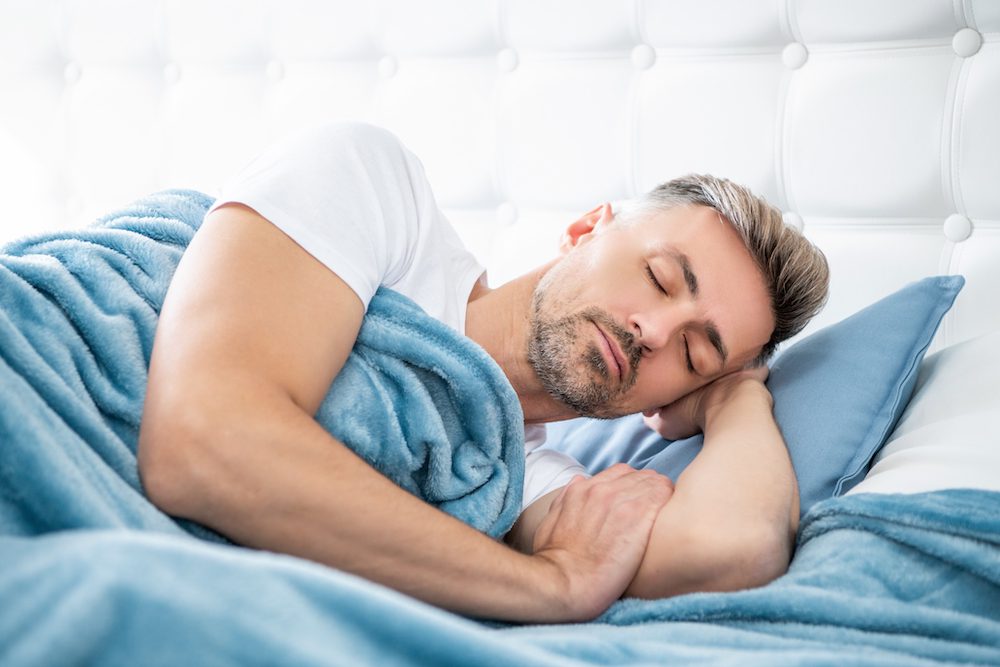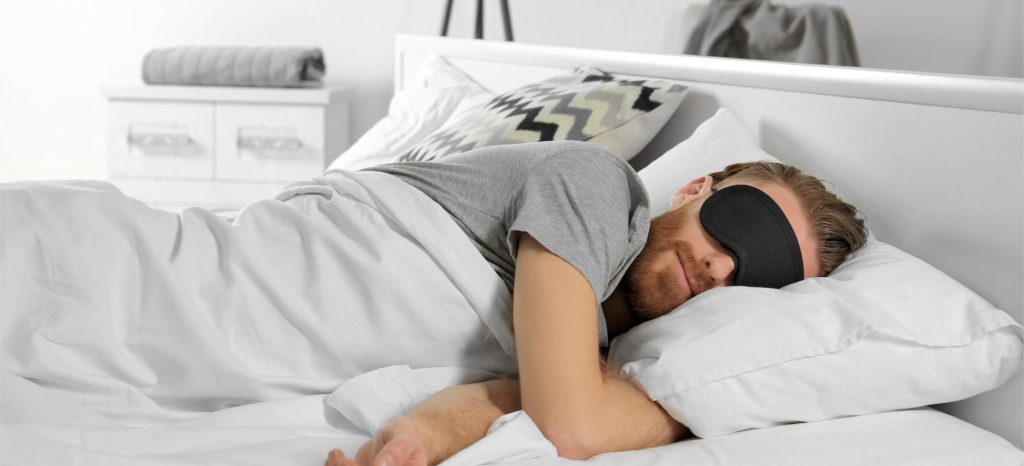When people think of healthy sleep, they often think of getting a certain amount of sleep every night. This is referred to as sleep quantity. While sleep quantity is definitely important, it is not the only factor in getting a good night’s sleep.
Just as important—and perhaps even more important—is sleep quality. This means regularly getting healthy, consistent sleep that allows your body to go through all of the restorative processes that are necessary to maintain our overall health.
What Is Sleep Quantity?
Sleep quantity refers to how many hours of sleep you get each night. According to the Centers for Disease Control and Prevention, the average person’s sleep needs are:
- Newborns (0-3 Months): 14-17 hours per 24 hours
- Infants (4-12 Months): 12-16 hours (including naps) per 24 hours
- Toddlers (1-2 Years): 11-14 hours (including naps) per 24 hours
- Preschoolers (3-5 Years): 10-13 hours (including naps) per 24 hours
- School-Age Children (6-12 Years): 9-12 hours per 24 hours
- Teenagers (13-18 Years): 8-10 hours per 24 hours
- Adults (18-64 Years): 7-9 hours per night
- Adults (65+ Years): 7-8 hours per night
These guidelines are generalized, and there are people who need more or less sleep than the amount recommended for their age group. However, even considering exceptions to the rule, there are many people in the United States who regularly don’t get the amount of sleep that they need. In fact, it is estimated that 50 to 70 million Americans suffer from some form of sleep loss, and approximately 35.2% of American adults report regularly sleeping less than the required seven hours a night.
What Is Sleep Quality?
Sleep quality refers to how well you sleep. Sleep quantity is one aspect of sleep quality, but it is not the entire picture. Other standards for high-quality sleep include:
- Sleep Onset Latency: Sleep onset latency means how quickly and easily you can fall asleep. Most people are able to fall asleep within 20 minutes of going to bed.
- Sleep Continuity: This is your ability to stay asleep once you fall asleep. High-quality sleep is continuous. Disrupted sleep at night is associated with less refreshing sleep overall.
- Sleep Efficiency: Sleep efficiency means how much time you spend sleeping versus how much time you spend trying to sleep. Some researchers consider spending at least 85% of your total time in bed trying to sleep as a minimum benchmark for sleep quality.
- Sleep Timing: Timing refers to when you sleep in a given 24-hour period. Our circadian rhythm dictates our internal clock and makes us feel alert at certain times (usually daytime) and sleepy at other times (usually nighttime). High-quality sleep is in line with the body’s circadian rhythms. This means sleeping and waking at the same times every day.
- Alertness During Waking Hours: Another indicator of quality sleep is your body’s ability to maintain wakefulness during the day, which includes being able to stay awake, as well as being able to function with your full cognitive and physical capacity.
- Sleep Satisfaction: Satisfaction is measured by how well-rested you feel both upon waking and throughout the day.
What Gets in the Way of High-Quality Sleep?
There are a number of things that can get in the way of a person’s sleep quantity and sleep quality.
Sometimes, the problem is an underlying medical issue. This may be a sleep disorder such as insomnia or sleep apnea, or a psychiatric condition such as depression, anxiety, or bipolar disorder.
In addition, there are many other conditions that interfere with healthy sleep, either as a primary symptom (like Parkinson’s and Alzheimer’s) or as an effect of symptoms like chronic pain, indigestion, or the need to urinate frequently. These conditions can be both the cause and the effect of sleep deprivation, meaning patients sometimes get caught up in a vicious cycle where a condition causes sleep loss, and sleep loss then aggravates the condition and causes more sleep loss.
Sleep quantity and quality can also be negatively affected by factors like having infants or young children at home, working a night shift, and dealing with stress. Additionally, recent studies have suggested that sleep quality and quantity may also be reduced by the impact of technology on our lives. This includes developments such as the extension of work time into the evening, as well as being increasingly plugged into the 24-hour digital world through various devices.
What Are the Harms of Poor Sleep Quality?
Poor sleep can have serious health consequences both in the short term and the long term. It may increase your risk of developing concerns such as:
- Cognitive, memory, and performance deficits
- Increased stress and irritability
- Depression and anxiety
- Hypertension, high cholesterol, heart disease, and stroke
- Weight gain and obesity
- Immune system issues
- Diabetes and insulin resistance
Trouble Sleeping?
We can help. Tell us about your sleep to get a free Sleep Doctor score with recommendations for better sleep.
How Can You Improve Sleep Quantity and Quality?
Though chronic sleep deprivation is problematic, the great news is that there are many ways to improve both the quality and quantity of your sleep. Steps you can take to get better, healthier sleep include:
- Addressing Underlying Issues: If you believe you may have a medical issue that is impacting your sleep, you should discuss it with your doctor as soon as possible. Many of the most common medically-induced sleep issues are treatable.
- Make Lifestyle Changes: While certain parts of your life may be harder to change than others, there are a few steps you can take that are likely within your power and may drastically improve your sleep. Getting regular exercise has been shown to improve sleep, as has cutting out cigarettes, alcohol, and caffeine in the hours before bed.
- Invest in Your Sleep Environment: Most people underestimate the importance of their sleep environment. Though everyone has their own preferences, people generally tend to get the best sleep in dark, quiet, comfortable environments. Make sure your mattress and bedding are comfortable, and consider investing in new ones if they aren’t. If you find yourself interrupted by noise or light from outside, consider ear plugs or blackout shades.
- Go Screen-Free: Though it may seem daunting to disconnect, studies have shown that bedtime phone use is associated with poor sleep. Using phones and other devices in bed also makes it more likely that you may lose track of time and can delay your actual bedtime significantly.
- Practice Sleep Hygiene: Sleep hygiene means incorporating behaviors into your life that promote healthy sleep. This includes some of the suggestions mentioned above, in addition to practices like having a nightly routine, maintaining the same bedtime whenever possible and winding down in the hour before bed with a relaxing activity like reading, taking a bath, or meditating.
As always, knowledge is power. The more you know about sleep quantity, sleep quality, and sleep health in general, the more tools you have to improve your sleep.
References
Ask the Sleep Doctor
Have questions about sleep? Submit them here! We use your questions to help us decide topics for future articles, videos, and newsletters. We try to answer as many questions as possible. You can also send us an email. Please note, we cannot provide specific medical advice, and always recommend you contact your doctor for any medical matters.








